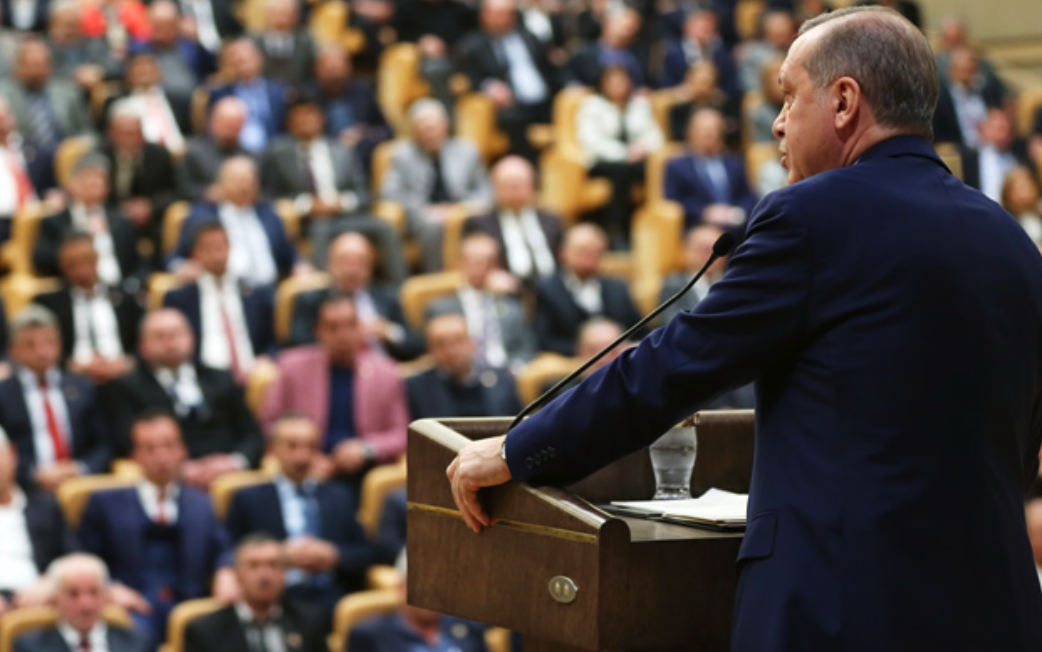Recep Tayyip Erdoğan’s victory has secured his control over all aspects of the Turkish state, but questions remain on how he will handle a looming economic crisis and whether he will plan for a successor or revise Turkey’s constitutional term limits. Discontent with Erdoğan’s personalistic rule will not abate following the elections, and his power will likely be contested in future votes with increasing vigor. By Dimitar Bechev in Foreign Policy Research Institute on June 5, 2023.
Erdoğan’s win is a fact. He prevailed in a contest which was not exactly fair but not unfree either. Millions of Turkish voters threw their lot with the reis—the “leader” as he is often known to fans and foes alike—whether they genuinely supported him from the start or were influenced by the strong pro-government bias in the media and the generous promises by the AKP party-state. The opposition Nation Alliance did the best it could but, frankly, they were fighting an uphill struggle. Even a leader with more charisma than Kemal Kılıçdaroğlu would have struggled to keep together as broad and diverse a coalition against a populist regime adept at harnessing the persistent allure of Turkish nationalism.
The victory speaks both to the strengths and weaknesses of Erdoğan’s rule.
Turkey’s strongman is a politician’s politician. One skill he has honed over his long years in the trade is winning elections. He has seen off more than one opponent, and managed to neutralize the two figures who present a challenge, Selahattin Demirtaş and Ekrem Imamoğlu. The former is in prison and, by the looks of it, will spend many more years there. The latter is at risk of serving time behind bars too—or at the minimum of being removed by office in due course thanks to the court case against him based on spurious charges.
More important, Erdoğan has long dealt with any alternative center of power within the state or civil society. The judiciary is tamed, despite the Constitutional Court’s occasional ruling that goes against the government. With AKP and their partners, the Nationalist Action Party (MHP) securing a healthy majority, parliament is reduced to a rubber stamp too. The state’s fiscal resources are up for grabs for crony businesses, not least in the ubiquitous construction sector. Low interest rates may be eating out people’s savings but they are good for those with access to state-backed credit. The media have but one task—praising dear leader and trumpeting Turkey’s success on the international stage, alleged American machinations notwithstanding. In short, Erdoğan has it all stitched up.
Even in a scenario where the opposition had emerged on top, that would have been by a thin margin. Erdoğan’s state machine, including the Supreme Electoral Board and the court media, would have kicked in and denied the victory. As they say in Vegas, the house always wins. Well, in Turkey, “the house” happens to be the gargantuan presidential palace in Ankara’s Beştepe district.
Yet Erdoğan’s job is only going to get harder in the new term. Turkey’s economy is fragile. Foreign exchange and gold reserves are evaporating, making it difficult to support the lira going forward. Turkish finances will be at the mercy of the country’s friends cum competitors from the Gulf, unless of course Erdoğan sees the light and hikes up interest rates to placate international markets. China and Russia can throw in some cash as well, but not deliver an IMF-scale bailout. High inflation will continue to erode living standards, fueling discontent. Growth will slow down too.
Part of the problem, of course, are structural imbalances in the economy— a low savings rate, stagnating productivity, chronically high unemployment in some regions, and a sizable current account deficit all undermine growth. In addition, the global environment is inhospitable. Russia’s war in Ukraine and the supply chain shocks caused by COVID have caused inflation and depressed demand in key export markets like the European Union. Yet there’s an Erdoğan factor too which makes matters worse while precluding the crafting of effective policy solutions. The president’s willingness to meddle in macroeconomic governance and take power away from economico technocrats carries a cost.
This hints at a longer-term challenge. In personalistic regimes such as Erdoğan’s, stability is a function of the leader and the power he wields, whether formal or informal. But Erdoğan is human, as we did notice during the election campaign where he had to pull out from a TV broadcast thanks to health issues. He is also difficult to replace on top of the system. There is no heir apparent and even if one emerges eventually before the next general elections in five years, he will find it hard to fill the big man’s shoes. Winning a presidential election without resorting to mass rigging or repression for instance may prove an impossible task for the successor. There is a strong chance therefore that Erdoğan stays in power beyond 2028 simply because there is no one to come after him.
That scenario too presents a risk as it implies constitutional change—whether abolishing the two-term presidential limit (as Putin did in Russia back in 2020) or bringing back the parliamentary system (in which case Erdoğan would return as prime minister). A new constitutional referendum could cause headaches for the regime as it could give the opposition yet another opportunity to rally against and challenge an increasingly senescent Erdoğan. The parties making the Nation Alliance are now in disarray. Yet their electoral base is not going anywhere. Half of Turkish society will continue to hold a grudge against Erdoğan, no matter what.
Turkey’s leader looks unassailable, having survived yet another political challenge. Yet his power is arguably past his peak. Governing Turkey is not going to get any easier in the years ahead.
By Dimitar Bechev in Foreign Policy Reseach Institute on June 5, 2023.

